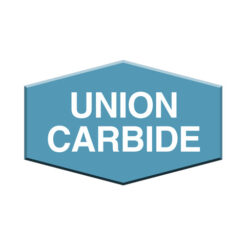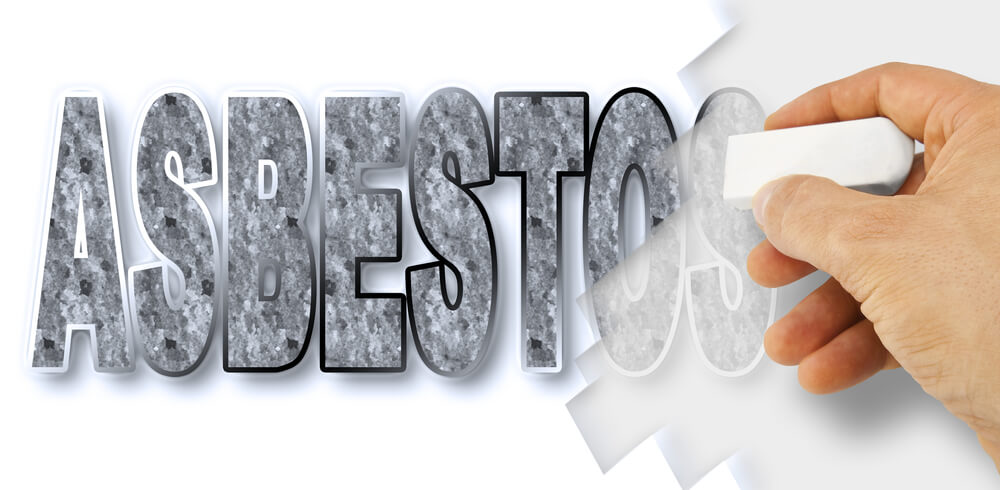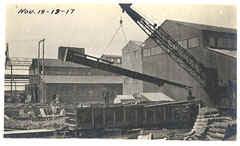Union Carbide
You may be entitled to receive compensation. Mesothelioma and lung cancer victims & their families have been awarded over $1 million+ from easy access to funds. Call us today to apply.
Over the past 20 years, we've helped 1,000s of families claim the compensation they deserve with no upfront costs to them.

Union Carbide operated three Niagara Falls facilities that manufactured graphite, carbon liners, cathode blocks and furnace electrodes from 1910 to 1986. Union Carbine also established an acetylene chemical plant in Niagara Falls in 1925.
These production facilities used asbestos-containing insulation and other materials that resulted in plant workers being exposed to the deadly carcinogen. Union Carbide also operated an asbestos mine near Coalinga, California, until 1985 and supplied asbestos to companies that manufactured and marketed construction products.
Union Carbide has been named in thousands of personal injury lawsuits filed by workers who claim they developed asbestos disease after working at Union Carbide plants and handling Union Carbide asbestos. The company has paid millions of dollars in asbestos claims and continues to face legal action. Internal company memos show that Union Carbide knew asbestos exposure causes cancers such as mesothelioma, but that putting cancer warnings on products would harm their business interests.
Belluck Law has represented clients in claims against big asbestos companies like Union Carbide. We know how asbestos was used at Union Carbide factories and which products caused end users to be exposed. If you have been diagnosed with mesothelioma, lung cancer or asbestosis, New York mesothelioma lawyers at Belluck Law can help you pursue maximum compensation from the asbestos companies responsible for your asbestos exposure. Learn how during a free case review.
Asbestos Exposure at Union Carbide in Niagara Falls
Table of Contents
Carbon Products
The Union Carbide Corporation had three Carbon Products division plants in Niagara Falls. The Acheson plant made graphite products, and the National and Republic plants made coal-based products for steel blast-furnace linings, cathode blocks for the aluminum industry, and electrodes used by the phosphorous and silica metal industries.
Making carbon products such as graphite is extremely heat intensive. Industrial production of graphite requires first creating coke from coal by cooking coke in a furnace at more than 3,500 degrees. The coke is then baked to around 3,000 degrees to create graphite. Graphite can also be made from silicon carbide by heating it to about 4,500 degrees, which evaporates the silicon and leaves pure graphite.
The furnaces used for graphite production at Union Carbide Niagara Falls were insulated on the inside with  asbestos-containing refractory and on the outside with asbestos insulation. Asbestos-containing insulation and materials were also used at Union Carbide in boilers and connecting steam piping and pumps, waterlines, circulating lines, and process lines, ducts and other high-temperature machinery and equipment.
asbestos-containing refractory and on the outside with asbestos insulation. Asbestos-containing insulation and materials were also used at Union Carbide in boilers and connecting steam piping and pumps, waterlines, circulating lines, and process lines, ducts and other high-temperature machinery and equipment.
Chemical Plant
From 1946 to 1978, Union Carbine owned a plant that produced chemicals from acetylene, including acetaldehyde, paraldehyde, acetic acid and vinyl acetate. Until the 1970s, asbestos was used at acetylene plants. Acetylene gas is explosive and is supplied in cylinders called dissolved acetylene (DA) cylinders. Asbestos was used as filler in acetylene cylinders to reduce the risk of explosions. Workers who examined, removed and replaced the asbestos in the filler in these cylinders may have inhaled microscopic asbestos fibers.
In addition, asbestos-containing materials were used throughout this plant, primarily as thermal insulation. Former Union Carbide workers brought suit against the company for asbestos exposure at its chemical plants that occurred from 1945 to 1980. They described frequent insulation work inside of Union Carbide plants in the following manner:
“They had men cutting and shoveling up asbestos all day long … They had no respirators. In some cases they didn’t even know it was asbestos. One man testified he had been using asbestos for two years when they told him it wasn’t.”
Were you exposed to asbestos at Union Carbide Niagara Falls? Belluck Law can help.
Union Carbide and Calidria
Union Carbide purchased a chrysotile asbestos mine in the mountains north of Coalinga, California, in 1963 and operated it until 1985. The asbestos was refined and milled in the nearby Salinas Valley.
Union Carbide sold asbestos mined there under the name “Calidria.” Union Carbide did not manufacture its own asbestos products from Calidria, but it sold the asbestos to manufacturers of asbestos products such as:
- Drilling mud
- Vinyl flooring
- Joint compound
- Ceiling tile
- Paints
- Sealants and coatings
- Paper products
- Bakelite
 Internal Union Carbide documents show that the company was aware as early as the mid-1960s that exposure to asbestos could result in workers developing fatal cancers. Yet it continued selling asbestos without warnings until the 1980s.
Internal Union Carbide documents show that the company was aware as early as the mid-1960s that exposure to asbestos could result in workers developing fatal cancers. Yet it continued selling asbestos without warnings until the 1980s.
A 1975 memo suggested that Union Carbide lawyers had recommended placing “cancer” on Calidria labels, but the suggestion was rejected due to business concerns. “We cannot predict with certainty what effect the use of the proposed label will have on our business but the general feeling here is that it is likely to vary somewhere between serious and fatal,” stated the memo.
A 1980 correspondence predicted a record sales year for 1981. It also noted that the company was facing several hundred asbestos lawsuits, as well as “adverse publicity” stemming from the “asbestos health issue.”
In the intervening years, the lawsuits have continued against Union Carbide over its Calidria asbestos. The first verdict against Union carbide in a Calidria case came in 2002, when a shipbuilder dying of mesothelioma was awarded $4.2 million. More recently, a couple was awarded $37.5 million as a result of the husband developing mesothelioma after working with Union Carbide asbestos products in the 1960s and 1970s. The award included $18 million in punitive damages — $1 million for each year Union Carbide continued selling asbestos after it knew its product caused cancer.
Diagnosed with mesothelioma? Download our Free Patient’s Guide.
Justice for Asbestos Victims
 Union Carbide and its parent company, Dow Chemical, are fully liable for asbestos diseases that their products caused. Workers at Union Carbide Plants who have been diagnosed with mesothelioma or other asbestos diseases also have a right to demand compensation for the losses they and their families have suffered.
Union Carbide and its parent company, Dow Chemical, are fully liable for asbestos diseases that their products caused. Workers at Union Carbide Plants who have been diagnosed with mesothelioma or other asbestos diseases also have a right to demand compensation for the losses they and their families have suffered.
Belluck Law has a strong track record of taking on big asbestos companies and winning maximum compensation for our clients. We have recovered more than $1 billion for asbestos victims and their families, including recent verdicts of $19.5 million, $22 million and $32 million.
If you worked at Union Carbide in Niagara Falls, N.Y., or used products made with Calidria asbestos, and have been diagnosed with mesothelioma, lung cancer or asbestosis, we can help. Visit our New York office and find out how we can help you during a free consultation.
Sources:
- Los Angeles Times: Union Carbide Liable for Asbestos Illnesses
- Los Angeles Times: Case Hinges on Material Witness
- Law360: Calif. Jury Awards M in Union Carbide Asbestos Case
- FindLaw: Izell v. Union Carbide Corporation
- New York State Department of Environmental Conservation: 1501 College Avenue
- New York Times: Union Carbide
- Carbide Retiree Corps: History of Union Carbide Corporation
- British Journal of Industrial Medicine: Mortality of workers at acetylene production plants
- Sciencing: How to Turn Carbon into Graphite
- Union Carbide Internal Memo
Other Asbestos Companies in New York
- Ferro Corp
- Pilgrim State Hospital
- Bennett High School
- Garlock Palmyra
- Mesothelioma Cases at Ironworkers Local 6 Buffalo
- Remington Arms
